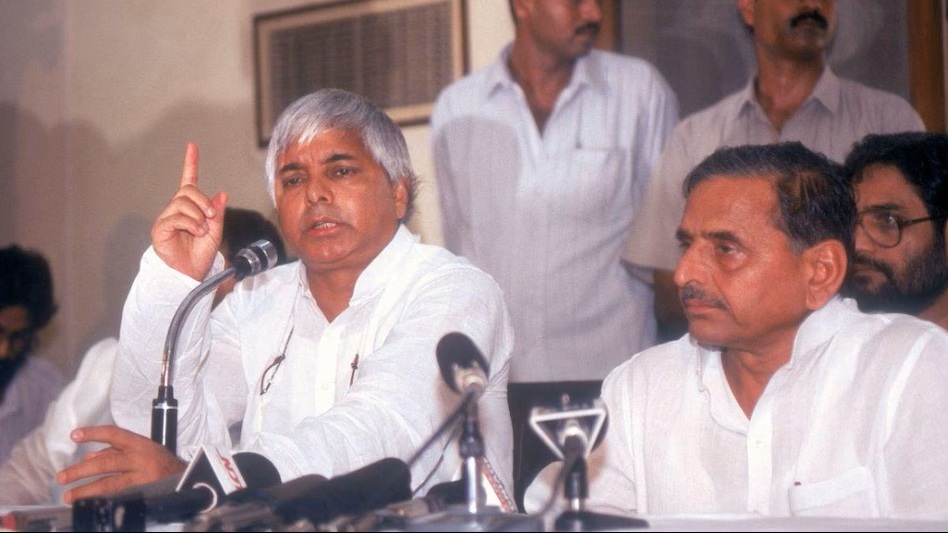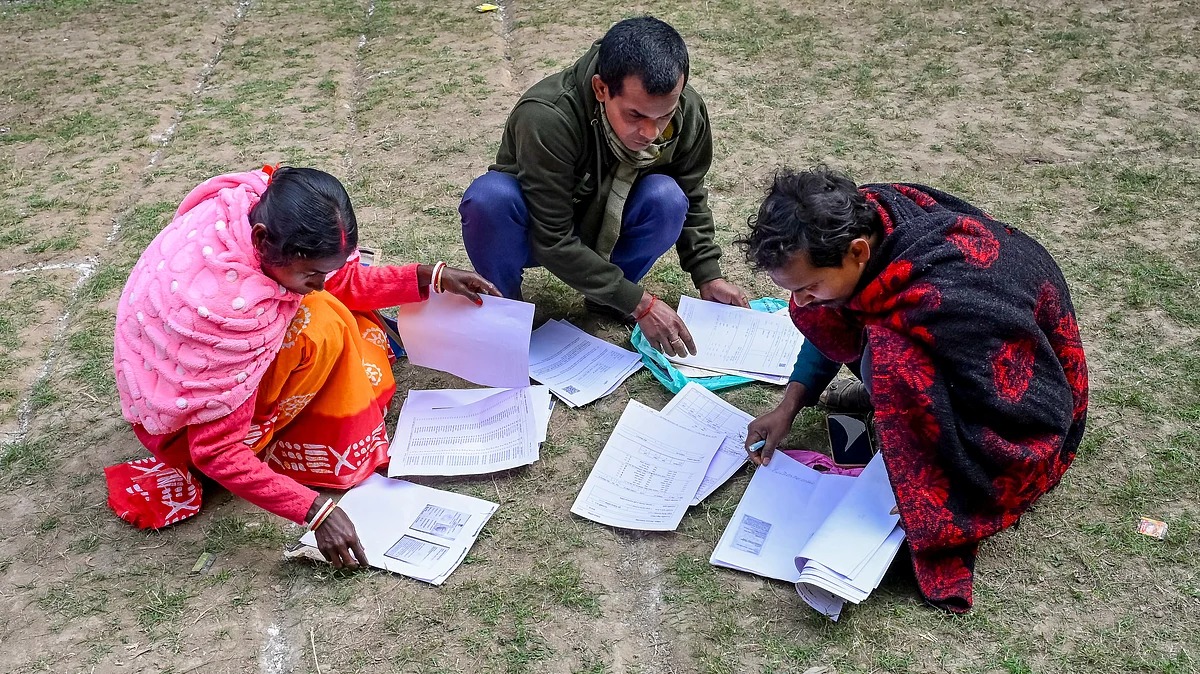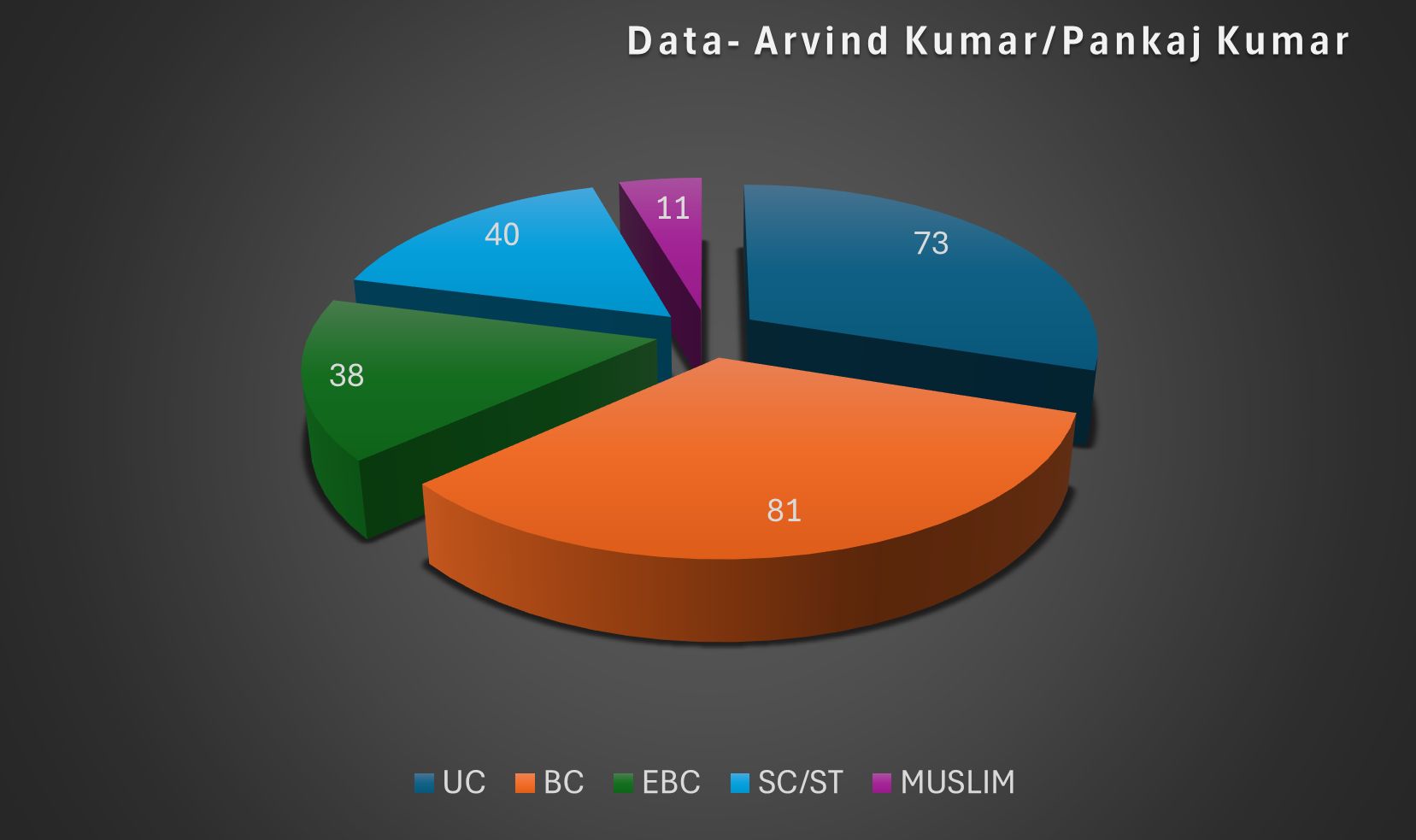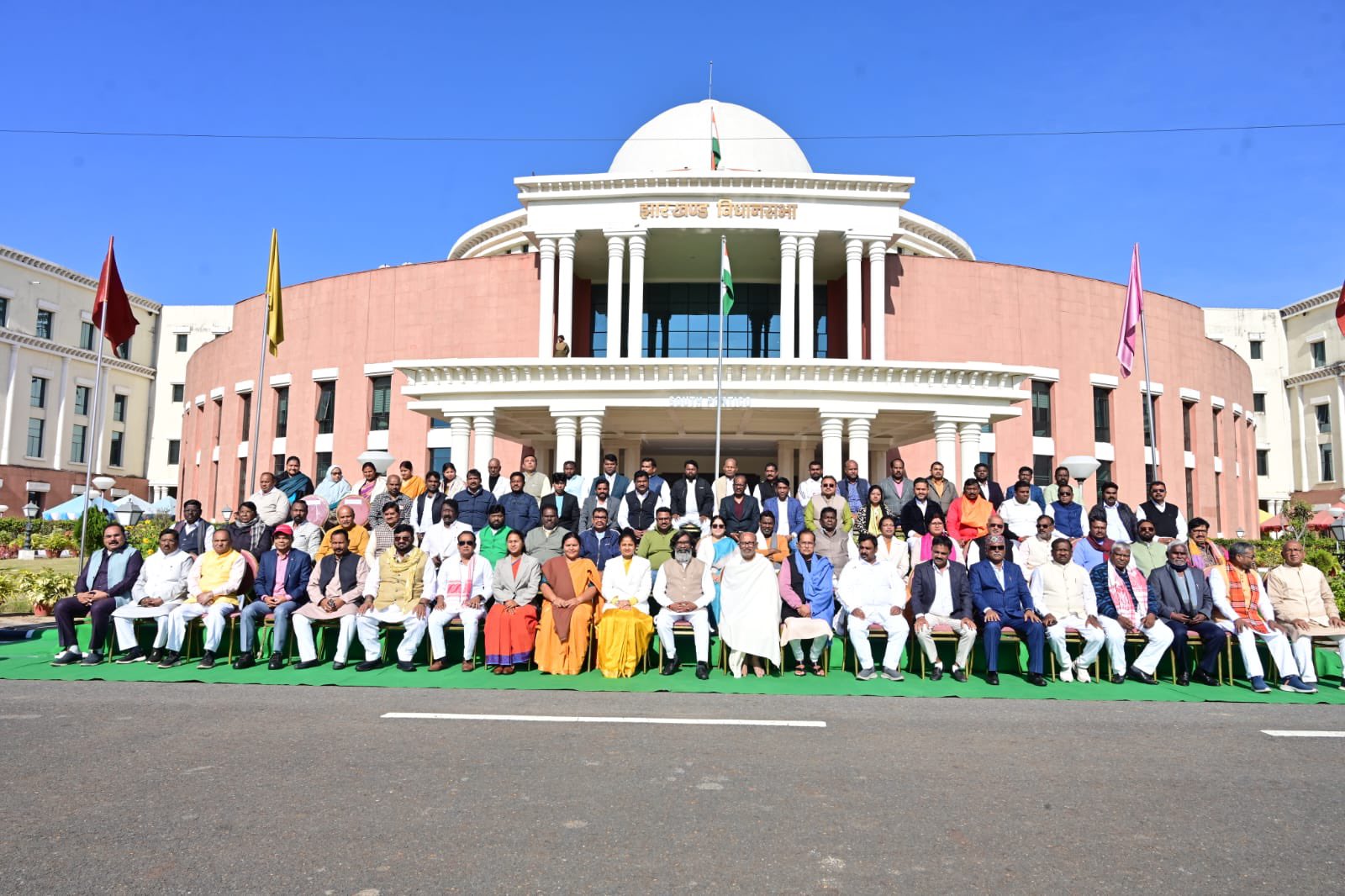In Uttar Pradesh, a shortage of fertilizers is felt starting in July when paddy is sown. This is the kharif season. The shortage is at its most acute in October-November, during the Rabi season, when farmers need DAP, NPK and Urea fertilizers for potato, wheat, mustard, pea and linseed crops. The shortage assumes serious proportions in a huge, predominantly agricultural state like Uttar Pradesh. Farmers wait in queues for days from morning till evening for fertilizers. They brave the lathis policemen use on the pretext of maintaining order.
Rampal, a farmer from the Narai village in Sahson Block of Prayagraj district, owns two bighas of land, which is about two-thirds of an acre. He has also taken some land on lease. Farming is his sole source of livelihood. Besides wheat and paddy, he also grows vegetables. When asked about the fertilizer crisis, he says that fertilizer is available in ample quantities in the open market. The problem is with the cooperative societies. “Why don’t you buy from the market? Is it costlier?” He replies: “Of course, it is costlier. But even more important is the issue of fake fertilizers.” According to him, once when he could not procure fertilizers from the society, he bought it from the open market and applied it to his field. But it changed nothing. The production was dismal. Since then, he has decided that he would never buy fertilizers from the open market “even if it means sowing without fertilizers”.
“Is the fertilizer sold in the open market so ineffective?” Rampal responds, “Even if it is 50 per cent effective, one can apply two bags instead of one. But it is completely useless. There is a difference between ‘adulterated’ and ‘fake’.”
Ram Narayan, a farmer from Bigahia Gram Sabha, says that there is no end to the problems farmers face. When they need to irrigate their fields, the power supply stops and canals run dry. Diesel has become costly and they don’t get fertilizers and seeds during the sowing season. Earlier, when they were solely dependent on government supplies for seeds, sowing was delayed by months because seeds did not reach the outlets at the block level. Then, farmers began buying seeds from the open market. Now, seed shops and godowns have come up in the rural markets and intersections in villages. The government seems to be doing the same thing vis-à-vis fertilizers. It wants to free itself from this responsibility, too, and make farmers buy from the open market.
Bharat Lal, a farmer from Saraiyan Gram Sabha in Phulpur block, says that the farmers have to make an advance payment to the societies to ensure supply of fertilizers. Along with a bag of urea, they are handed over bottles of nano urea; along with a bag of DAP, they are given packets of zinc or some other micronutrient. Sometimes, instead of DAP, they are supplied with NPK. “The societies have no consideration for our budget. It forces us to buy less popular chemical products of fertilizer companies,” he says.
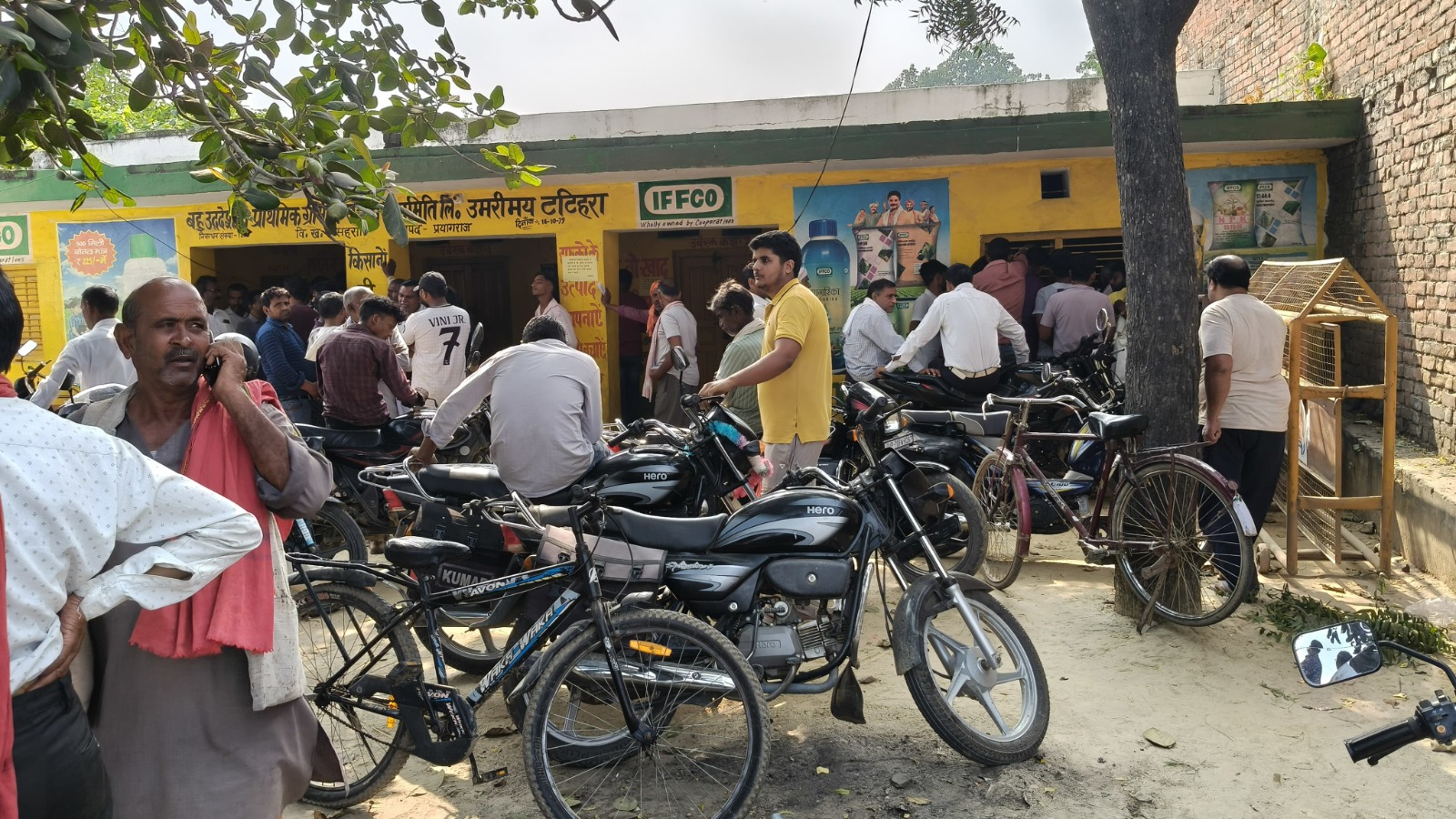
Akhilesh Yadav, the supremo of main opposition Samajwadi Party, has raised the issue of shortage of chemical fertilizers. He said that the farmers are unable to get DAP (Diammonium Phosphate) and NPK (Nitrogen, Phosphorous, Potassium) fertilizers for sowing. He said that in Lakhimpur Kheri, Mahoba, Fatehpur, Badayun, Amethi and other districts, farmers have to wait in long queues at the offices of the cooperative societies for fertilizers. Sometimes, they have to return empty-handed even after a daylong wait. Meanwhile, black marketeering and profiteering continues. He said that the government was disrupting farming as part of a conspiracy. Farmers were lathicharged at many places during the paddy-sowing season and they are being lathicharged during the wheat-sowing season, too.
On 27 October, thousands of farmers from across the Ganga and the Yamuna congregated for the non-political Mahapanchayat of Bharatiya Kisan Union at Civil Lines in Allahabad. Earlier, on 24 October, farmers held an angry demonstration in Chitrakoot to protest fertilizer shortage. They said that they were not getting fertilizers despite queuing up for hours. Prior to the demonstration, farmers had laid a siege to the office of the District Magistrate of Mahoba.
What the government says
The government and its agencies have been dishing out the same excuses season after season. They say that there are enough stocks of fertilizers and that the farmers should not indulge in hoarding and should buy only as much as they need. The government has also been saying that there is no dearth of fertilizers and that the problem lies in the distribution.
In August this year, the UP Agro Input Dealers’ Association claimed that the shortage was due to the uptick in once the rainy season ended, limited stocks with cooperative societies and slashing of the permissible quota for private sellers. The association’s president Atul Tripathi said in a statement that the profit margins of wholesale and retail traders is too low, making the business unsustainable for them. The problem has aggravated as private shops outnumber cooperative outlets. The agriculture department has slashed the quota of private outlets by 30 per cent and allocated it to cooperative societies. The association claims that the fertilizer companies are forcing the farmers to buy nano urea, nano DAP, calcium, zinc, sulphur, etc, further worsening the situation. Currently, a bag of urea costs Rs 270. DAP is priced at Rs 1,360 per bag.
What the government did
The state government has devised a new set of rules to deal with the shortage of fertilizers, curb black marketeering and ensure transparency. Now, Sadhan Sahkari Samitis will sell urea, DAP and other fertilizers only to farmers who are members of the Samiti or hold farmer identity cards (kisan credit card or krishak card). Non-members won’t be allowed to buy fertilizers. The government argues that this will ensure that farmers are not able to buy fertilizers from more than one cooperative committee and thus curb illegal sale. It will also promote digitization of the entire process and farmers will be able to buy fertilizers using their farmer ID, instead of aadhar card, khatuani (land ownership document) or other documents. This policy came into force from the 2024 Kharif Season and the membership drive will continue till the end of this calendar year.
While announcing the new system in August last year, Agriculture Minister Surya Pratap Shahi said that there was no shortage of urea, DAP and NPK fertilizers in the state and that the problem lay in the distribution process. As a remedy, a new policy is being enforced under the Uttar Pradesh Cooperative Societies Act 1965. Under the new policy, membership-based distribution will be promoted. Krishak cards will be provided to farmers once they become members of the local Sadhan Sahkari Samiti. Only holders of this card will be entitled to receive fertilizers. The card can be obtained from the nearest Sadhan Sahkari Samiti or the block office by producing an aadhar card, khatauni (land ownership document), bank passbook, photographs and by paying a fee of Rs 50-100. The process takes up to two weeks.
Om Prakash Patel, a farmer from Gram Sabha Manshi Bujurg, says, “All this exercise is being done to prove that the farmers are ineligible for fertilizers and to persuade them not to queue up at society offices. This is the way this government has been functioning. It sacked Shikshamitras by declaring them ineligible. The Shikshamitras were eligible to teach children but ineligible to get salaries on a par with regular teachers! Similarly, during the Covid-19 pandemic, three crore ration cards were cancelled as they were not linked to Aadhar numbers, thus depriving three crore families of subsidized rations. In Bihar, lakhs of people lost their right to vote merely because they didn’t have certain documents. So, this government can declare anyone ineligible. Scholars are kept out of university programmes by dishing out the “not-found-suitable” excuse. For want of an aadhar card, a large number of patients and pregnant women are being turned back from Primary Health Centres and District Health Centres. Some day, this government may declare someone ineligible to live and have him shot.”
Gulkahiya Devi, who tills leased land in Gramsabha Paali, says, “From where will farmers who don’t own land get Khasra-Khatauni? The government is making it difficult for those who grow crops on leased land or in partnership [land yours, labour mine and equal share in inputs and produce]. Where will they bring the documents from?” Gulkahiya is obviously hinting at the members of the Dalitbahujan who are either landless or own very small pieces of land and make a living by tilling the land of others.
(Translation from the original Hindi by Amrish Herdenia)
Forward Press also publishes books on Bahujan issues. Forward Press Books sheds light on the widespread problems as well as the finer aspects of Bahujan (Dalit, OBC, Adivasi, Nomadic, Pasmanda) society, culture, literature and politics. Contact us for a list of FP Books’ titles and to order. Mobile: +917827427311, Email: info@forwardmagazine.in

